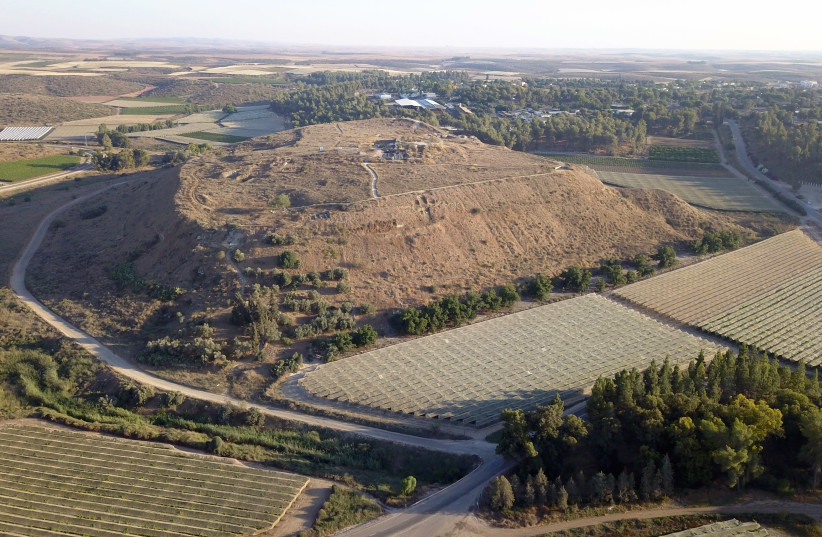In announcing that it was the final cabinet meeting of the current administration, Prime Minister Yair Lapid told his ministers on Sunday that this short-lived government had managed to pass 1,613 decisions.
The number struck me as symbolic because of the 613, corresponding to the number of mitzvot in the Torah. It’s a number that stays with many of us. Some people arrange phone numbers with 613 or perhaps a license plate or even an email address. It just hits you when you see it.
In that spirit, I posted a wish on Facebook that the decisions of our executive, and of course I would extend that wish to include the Knesset and courts, should serve us well. I noted that Moses had handed down 613 edicts from God to the Children of Israel but that he never made it into the land of Israel. We, on the other hand, have merited the ability to live in this land.
After several hours, my social media post drew a comment from someone wondering if I was presuming to compare Lapid to Moses.
To be honest, I deleted the post. It was a symbolic observation on my part and I wasn’t about to get involved in a discussion of Lapid’s attributes versus those of Moses. First of all, it wouldn’t be serious to do a tale of the tape between these two men. Secondly, that was not my point.

Here is my point: Why did those of us who have been fortunate enough to make aliyah decide on this move? The reasons vary. Let’s narrow it down. Why was this land chosen over Uganda, for example? What is the common denominator of those who make aliyah? We have come to the Promised Land.
Notwithstanding the unequaled contribution made by Moses, as God’s special envoy, to the formation of the Jewish people, it was not part of his job description to enter the Jewish homeland, no matter how much he beseeched God for the opportunity.
Was his successor, Joshua, as great as he was? It’s irrelevant to ask that question. Joshua’s role was to bring the Jewish people into their land.
I think it’s clear where I am going with this. First of all, a review of the Bible will show a checkered track record among our leaders. Even before Moses, the weekly Torah portions we are currently reading present situations of questionable actions by our very founders. It is not for us to question as much as it is for us to learn.
I wonder what the people who are disgusted by our current leaders, and that’s probably many of us, would have said about various Jewish leaders in the past if they had to live under them.
Taking a giant chronological leap from those ancient days, Lapid’s family background is a microcosm of the Jewish people’s history: persecution when we are not in our land. His family background is one that many of us share with him in some shape or form.
THE SAME God who decided that Moses was not supposed to enter the land has allowed us to be here today, not only to reestablish Jewish rule but to create a historic flourishing of Jewish life in a country in which we pass government decisions. It’s a great miracle but it comes with great responsibility.
Jewish leaders then and now
Living in modern Israel is like living in a real-time ongoing Talmudic dispute. Were those Talmudic arguments as vicious as the contemporary Knesset acrimony? If we have discussed Moses vs Joshua, do we discuss, in parallel, Lapid or Bennett vs Netanyahu, or Ben-Gurion vs Begin?
There are those, perhaps many who will argue: how can you, in the same breath, lower those holy ancient spiritual giants to the depths of our modern leaders?
That is a larger discussion for another time. But without that history, we are not who we are today. We are a continuation of the chain of history. It is why we are here. You can open up a Bible and read about the places where you are walking at that very moment. But we do not tread only in the past; we take the past and move it into the future.
Unlike the period of the Jewish wandering in the desert, we are told that life, once we are in our land, requires our own toiling to build up a nation. That nation has come home.
So yes, when I see the number 613 in the most mundane of circumstances, I still think of the spiritual heights it represents, just as in a totally opposite light we can’t help but feel chills in hearing that there are over six million eligible voters in the countless Knesset elections we have been enduring.
We’ve been enduring this mess but it’s a democratic mess. We may ridicule this prime minister or that prime minister but we are the people involved in deciding our future, which is a continuation of our past, a past that was broken off by exile but the exile is ending.
So was I daring to even suggest a comparison between a current Israeli prime minister and Moses? I was simply trying to remind myself that in the midst of any negativity we experience here on a daily basis, we must never forget the larger picture.
May we be worthy of taking the attributes of the many different types of people in our country, some perhaps greater than others, and together mesh a society that would make our ancient leaders and, of course, God proud.
The writer is op-ed editor of The Jerusalem Post.
